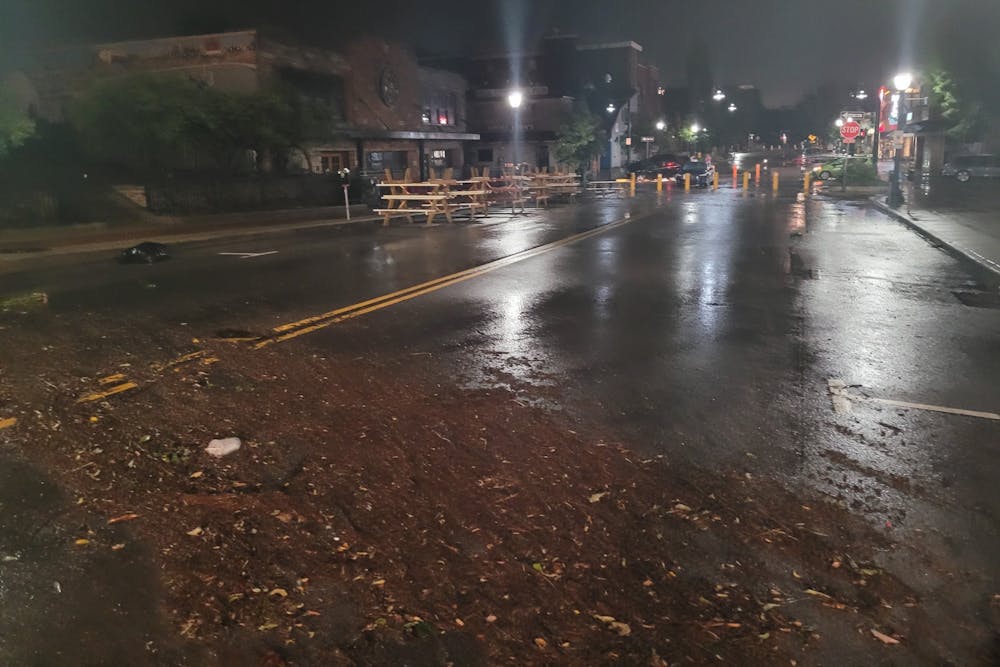The Monroe County Health Department urges Bloomington residents to be conscious of their safety and multiple health risks after the weekend brings severe thunderstorms and floods.
Floodwater may be contaminated and present multiple health risks, such as water-borne illnesses, drowning and other clean-up related dangers, according to a Monroe County Health Department press release.
What do I do after floodwaters recede?
The health department released a list of tips for how to safely recoup and clean after a property experiences a flood. Health officials said to wait until floodwaters recede to begin clean-up.
Tips include:
Wash hands with warm water and soap when exposed to floodwater
Clean surfaces touched by floodwater, a bleach solution of ¼ cup of chlorine bleach to one gallon of water is recommended
Turn off electricity
Clean and dry light fixtures before turning electricity back on
Throw away damaged items, including wet ceiling tiles, drywall and insulation
Open windows and doors during cleaning process for at least 24 hours if possible
Wear rubber boots, gloves and goggles during clean up
Wipe wood and metal studs with bleach solution and air dry
Wet vacuum, shampoo and completely dry carpets
Is my food safe to eat?
If an area loses power during a storm, food may be at risk to spoil, according to the release.
To prevent loss of food and decrease risk of foodborne illness, local health officials said to keep refrigerator and freezer doors closed as much as possible. Meat, poultry, fish and eggs should be refrigerated at or below 40 degrees while frozen food should be at or below zero degrees, according to the release.
When deciding if a food product has gone bad, health officials said “when in doubt, throw it out.”
In case of future emergencies, they said residents should have a supply of non-perishable foods as well as a hand-held can opener. They recommend each member of a household has at least a 72-hour supply of water, food and medicine.
Additionally, residents who live in areas commonly affected by floods should store food items on shelves above where potential flood waters can rise.
Should I be worried about mold?
When a building experiences excessive moisture, mold growth can often occur when left unaddressed and be found almost anywhere, according to the release.
Mold can grow on many surfaces, including wood, carpet and insulation, when moisture and oxygen are present, according to the release. Controlling the amount of moisture indoors can curb mold growth.
Residents should look for discoloration on walls, carpets, ceilings and furniture and watch for a musty smell, which may indicate if a building has mold, according to a Monroe County Health Department document.
Materials may still develop mold even if dried within 48 hours, according to the document.
Is my drinking water safe?
Residents who rely on water from cisterns and wells should check to make sure that water is safe to use after a flood, according to the release.






